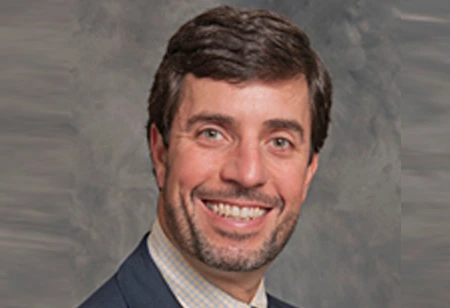Thank you for Subscribing to Healthcare Business Review Weekly Brief

A Key to Well - Being Success: "The Buddy System"
Healthcare Business Review
Buddy up! Most folks had a similar introduction to the buddy system. As a youth, you were heading out on some ‘life-threatening’ adventure - swimming in a lake, cruising an amusement park, or hiking a forested mountain (ahem, hill) when the adult in charge did the mental math to realize it was impossible to keep the gaggle of youth safe. The adults didn’t have enough hands nor eyes to keep everyone out of harm’s way. “Buddy up” was the command inspiring a mad dash of youth grasping hands with someone nearby. If you were lucky (or particularly quick), you grabbed the hand of a close and trustworthy friend. Chances are you didn’t. In fact, you may have hardly known the person. At this point, the stark reality sets in. How on earth is this young person who I hardly know going to keep me safe? All you knew was as “buddies” you looked out for one another. The partnership and hence collective provides strength and safety. The military adopted the concept of battle buddies in the Army, shipmates in the Navy and wingmen in the Air Force. It’s commonsensical that pairs of buddied soldiers are more than twice as strong, safety conscious, resourceful and intelligent than any one soldier. It’s a no-brainer to implement this force-multiplier when heading into battle. Leaders in healthcare should consider invoking the buddy system.
Burnout has become an insidious challenge in healthcare - only to be magnified by the ongoing pandemic battleground. Caregivers of nearly all roles (but, particularly at the bedside) are feeling stressed, undervalued, threatened, and many have lost sight of the ‘purpose’ behind their career-long generosity and hard work. Wellness programs providing nutrition resources, step-challenges, mindfulness training and other personal health inducements are foundational to well-being, but not sufficient. Benefits now extend to dependent-care support, financial education, concierge services and other methods enabling integration between career and personal life, but if that were the extent of the offerings, organizations still come up short.
Today’s healthcare survival depends on interdependence. Employee assistance programs and therapy are proven ‘safety net’ devices; effectively catching the fallen, but doing little to prevent the fall. Progressive organizations have mature widespread programs for peer support, coaching, mentorship, performance improvement and breeding engaged well-being leaders. These critical programs have one thing in common; they have their roots in the buddy system.
In 2017, the former US Surgeon General Vivek Murthy indicated loneliness was a public health epidemic. Coincidentally, he finds himself as US Surgeon General again (2021 Biden administration appointment) with a nation in the throes of a pandemic where physical distancing, masking and remote work remain key counter-measures to spread, but also magnifiers of loneliness. As a healthcare practice leader, the needs of individuals in your charge often outnumber and outweigh the care and support you alone can provide. You must channel the wisdom of the camp counselor, scout leader or field commander - “buddy up.”
Teaming has been a widely recognized discipline among business leaders for decades. Education systems have recognized the value of collaboration in the classroom. At the pinnacle of high-performance teams stands one common value. The members of a truly high-performance team are deeply committed to each others’ personal growth and success through mutual accountability (Katzenbach & Smith, The Wisdom of Teams, 2015). This commitment is based on the same foundation as the buddy system. One must first survive to thrive. The buddy commitment transcends average workgroup performance by allowing the collective to outperform expectations. It has the added value of cultivating each participant’s voice; a critical element for a psychologically safe workplace (Edmondson, Teaming, 2012).
The buddy commitment transcends average workgroup performance by allowing the collective to outperform expectations
Leaders can formalize this effort or keep it relatively informal, but the outcome will likely be a magnified caring environment that is invaluable today. Inclusive leadership that generates camaraderie and esprit de corps is a major burnout remedy (Swenson & Shanaft, Strategies to Reduce Burnout: 12 Actions to Create the Ideal Workplace, 2020). Assigning buddies based upon their roles, backgrounds, attitudes or needs could be useful, but it’s not a requirement. The instructions could be to generically “check-in periodically with one another.” Or, the leader can provide occasional prompts to inspire connection and remind the team members their well-being is an organizational priority.
>Share three things from the past 24 hours for which you are grateful.
> What have you done to benefit your decompression this week?
> Text me an awe-inspiring picture in the next week.
> What are your plans for your next time off?
> Have you identified any process improvement ideas we could consider implementing in the next month?
> How is Maslow treating you? Are you eating, sleeping, connecting with close friends, family and colleagues?
The buddy system holds a key to emerging from the dark place healthcare and the pandemic has bred. Whether you are a leader or not, you can pick up the phone and call/text a buddy. “Truly, how are you doing? Is there anything I can do to help? Wanna chat?” Listen to their challenges. Consider their plight. Ask for more details. Brainstorm what’s in your combined control to improve. Don’t overthink it. Take a page from Nike - just do it. Buddy up!









